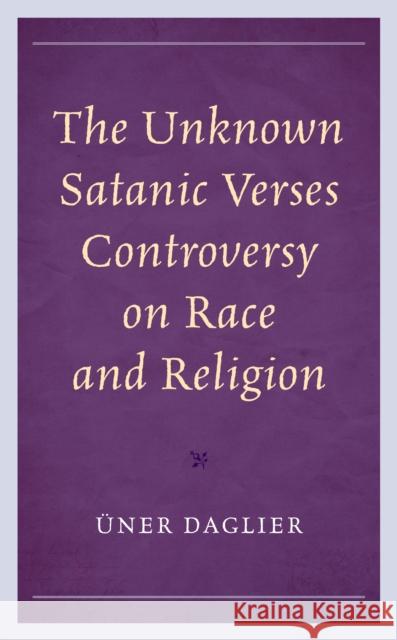The Unknown Satanic Verses Controversy on Race and Religion » książka
The Unknown Satanic Verses Controversy on Race and Religion
ISBN-13: 9781793600059 / Angielski / Miękka / 2021 / 178 str.
The Unknown Satanic Verses Controversy on Race and Religion
ISBN-13: 9781793600059 / Angielski / Miękka / 2021 / 178 str.
(netto: 163,26 VAT: 5%)
Najniższa cena z 30 dni: 169,32
ok. 30 dni roboczych.
Darmowa dostawa!
The worldwide controversy surrounding its first publication in 1988 and concurrent death threat against its author, Salman Rushdie, paradoxically led to a narrow understanding of The Satanic Verses, which focused on whether it is insulting to Islam and whether it should be banned. And despite piecemeal attention to its epistemic intricacies by students of postcolonial literature in the aftermath, The Satanic Verses' essential opacity has never been sufficiently met. The Unknown Satanic Verses Controversy on Race and Religion now responds to this gap through painstakingly detailed attention to the totality of Rushdie's text. Indeed it uniquely approaches The Satanic Verses' attempt to mythicize race and migration, on the one hand, and secularize religion and Islam, on the other, from a perspective informed by the perennial debate on religion and politics, esoteric or coded writing in the history of political thought, especially in times of persecution, and Islamic criticism in contemporary world literature. UEner Daglier's findings accord with another layer of interpretation that emphasizes Rushdie's across-the-board critique of racial prejudice, penchant for cultural eclecticism, and bitterly skeptical treatment of the foundations of Submission and proposal for feminist Islamic reform, as the antidote for entrenched misogyny, in a world where philosophy is for the rare and religion for the many. They further convey Rushdie's constant preoccupation with the nature of miracles and postmodern case for intersubjectivity as a criterion for openness to their validity.











